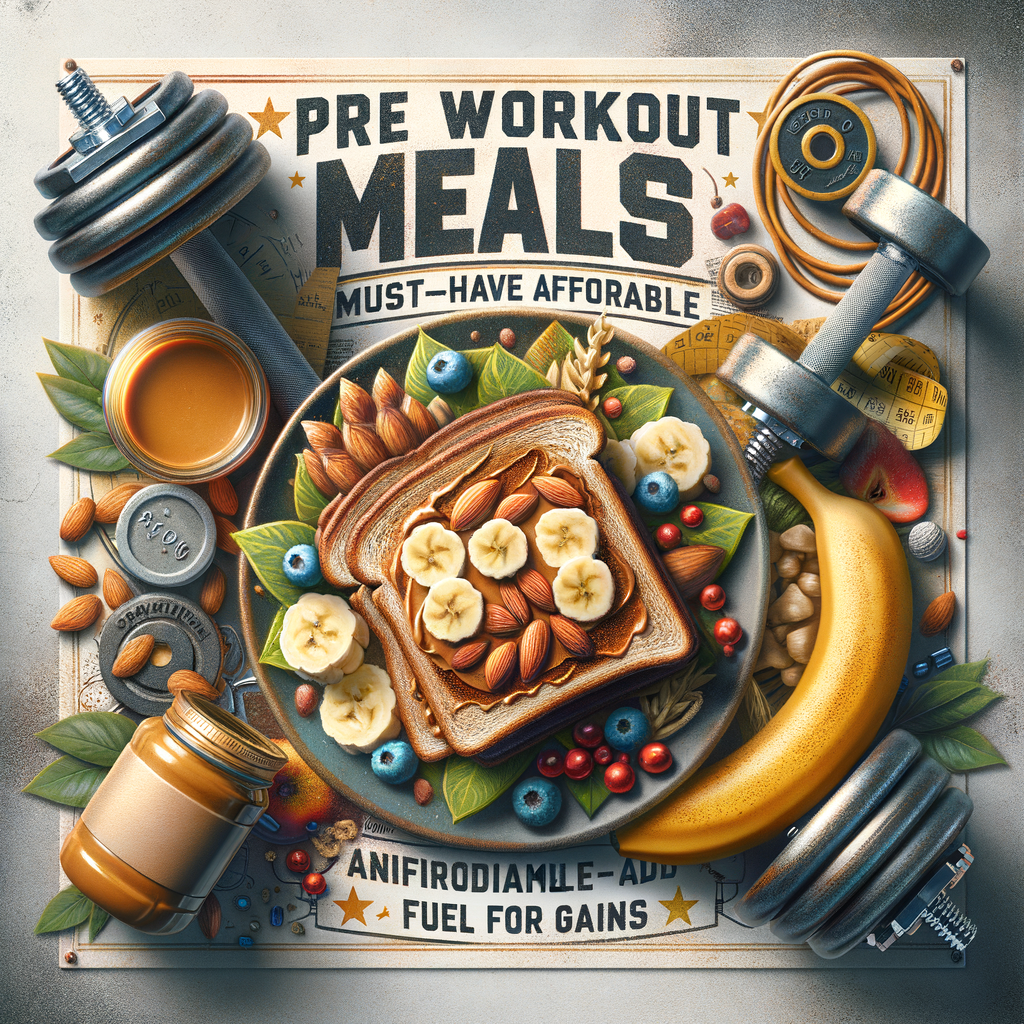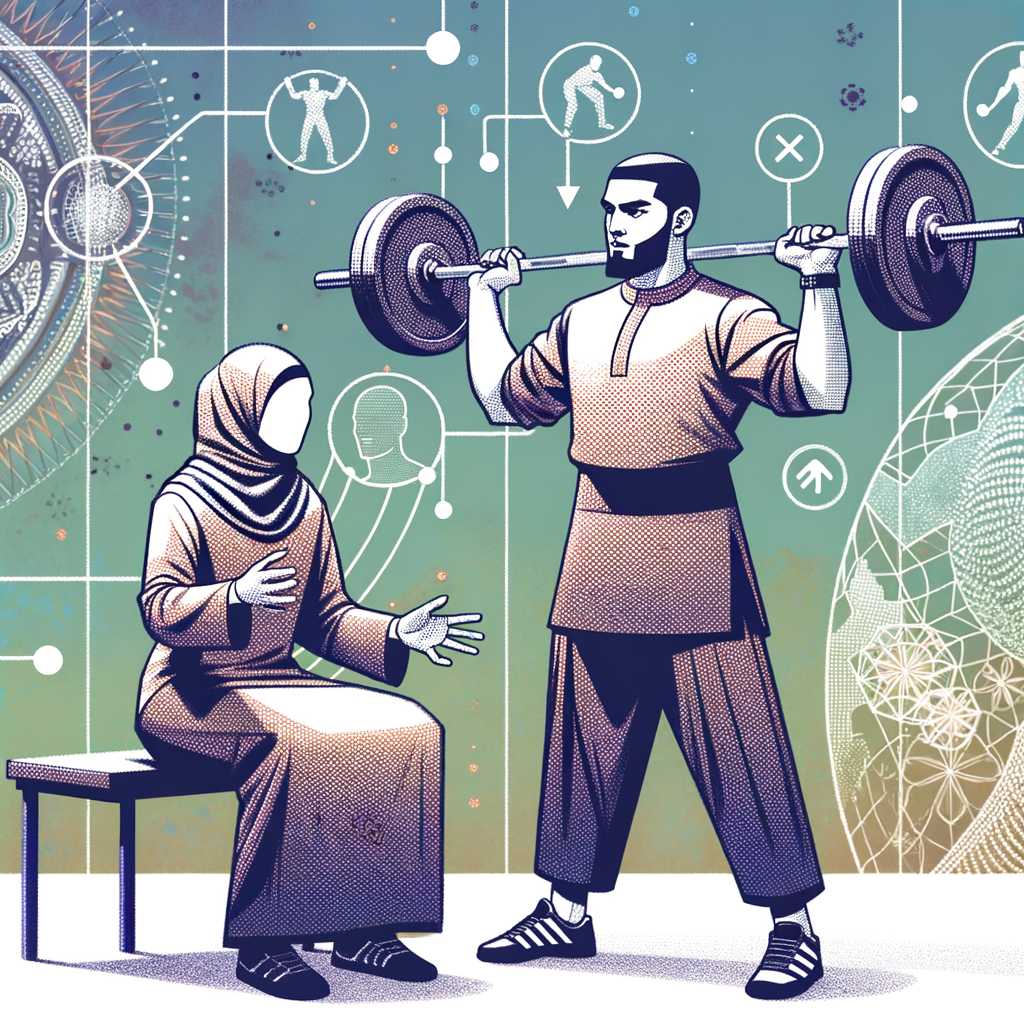- What Makes a Good Pre Workout Meal?
- Macronutrients: The Building Blocks of Pre Workout Meals
- Timing Your Pre Workout Meal for Best Results
- Affordable Carbs That Fuel Performance
- Budget-Friendly Protein Sources
- Healthy Fats That Don’t Break the Bank
- Simple Pre Workout Meal Ideas Under $3
- Quick Recipes You Can Make in Minutes
- Sample Pre Workout Meal Planner (Table)
- Pre Workout Meals for Different Training Goals
- Pre Workout Meals for Morning Trainers
- How to Customize Pre Workout Meals by Workout Type
- Meal Prep Tips to Save Time and Money
- Smart Shopping Strategies for Affordable Fuel
- Supplements vs. Real Food: What to Choose?
- Common Pre Workout Meal Mistakes to Avoid
- Hydration: The Often Overlooked Component
- Practical Daily Meal Schedule Example
- Simple Walkthrough: Building a Pre Workout Plate
- How to Gauge If Your Pre Workout Meal Works
- Top 10 Budget-Friendly Grocery List for Pre Workout Meals
- Simple Weekly Meal Prep Plan (2–3 Meals Prepped)
- When to See a Professional
- Wrapping Up: Practical, Affordable Fuel Wins
- Frequently Asked Questions (FAQs)
- References
Why Pre Workout Meals Matter More Than You Think
You can train harder and recover faster when you eat the right fuel before exercise. Pre workout meals provide the energy your muscles need. They also stabilize blood sugar and support focus. In short, they set the tone for a successful session.
Most people think pre workout meals must be expensive or complicated. However, affordable ingredients deliver great results. With a little planning, you can assemble meals that boost power and preserve budget. Below, you will find practical tips, simple recipes, and shopping strategies to help you maximize gains without overspending.
What Makes a Good Pre Workout Meal?
A good pre workout meal combines three things: carbohydrates for energy, protein for muscle support, and a bit of healthy fat for satiety. Carbs fuel high-intensity movement quickly. Protein reduces muscle breakdown and helps with repair. Fat slows digestion and prolongs energy in longer workouts.
Timing matters as well. You should aim to eat 30 minutes to three hours before training, depending on the meal size and your digestion. Smaller snacks work well closer to workouts. Larger meals need more time so you don’t feel sluggish or bloated.
Macronutrients: The Building Blocks of Pre Workout Meals
Carbohydrates should make up the bulk of your pre workout meal. They supply glycogen, which muscles use for short bursts and sustained effort. Prioritize whole-food carbs like oats, rice, potatoes, and fruit. These options cost less and offer nutrients beyond quick sugars.
Protein matters too. Eating 15–30 grams of protein before a session helps limit muscle protein breakdown. Good affordable sources include eggs, Greek yogurt, cottage cheese, canned tuna, and chicken breast. Meanwhile, fats should remain moderate. Too much fat slows digestion and can make you feel heavy during exercise.
Timing Your Pre Workout Meal for Best Results
If you eat a small snack, do so 30 to 60 minutes before training. This keeps blood sugar stable and gives immediate energy. Examples include a banana with peanut butter or a yogurt with fruit.
For larger meals, aim for two to three hours before your workout. That timing lets your stomach empty enough so you won’t feel weighed down. Think of a bowl of rice with chicken and veggies or a hearty oatmeal with protein powder and nuts.
Affordable Carbs That Fuel Performance
You don’t need fancy products to get carbs. Whole grains, potatoes, oats, bananas, and rice provide steady fuel at low cost. Buy in bulk to save more. For example, a 5-pound bag of rice or oats costs pennies per serving.
Additionally, seasonal fruit often costs less. Apples and bananas last several days and offer quick energy before a session. Frozen fruit also works well and stays inexpensive year-round.
Budget-Friendly Protein Sources
You can meet protein needs without breaking the bank. Canned tuna, eggs, chicken thighs, lentils, and cottage cheese all deliver high-quality protein. They also stretch across multiple meals, which saves money.
Moreover, plant proteins like beans and lentils cost little and hold up well in bulk cooking. Combining them with grains completes the amino acid profile. Thus, beans and rice become a cheap, complete protein option.
Healthy Fats That Don’t Break the Bank
Healthy fats help keep you full and support hormone health. Affordable sources include peanut butter, olive oil, avocados (on sale or frozen), and chia seeds. Use fats sparingly in pre workout meals to avoid sluggishness.
Remember, small amounts of fat before training still provide value. For example, adding a tablespoon of nut butter to a banana or a drizzle of olive oil on rice gives flavor and steady energy.
Simple Pre Workout Meal Ideas Under $3
Try these low-cost, effective options. Each delivers carbs and protein in practical portions.
– Oatmeal with banana and a scoop of peanut butter
– Rice with black beans and salsa
– Two eggs on toast with a piece of fruit
– Greek yogurt with frozen berries and honey
– Canned tuna on whole-grain crackers
These meals cost roughly $1.50 to $3 per serving, depending on local prices. They also scale easily for meal prep and variety.
Quick Recipes You Can Make in Minutes
Try a peanut butter banana wrap for a fast snack. Spread two tablespoons of peanut butter on a whole-grain tortilla. Add a sliced banana and roll. Cut in half and eat 30–60 minutes before a workout.
Alternatively, make a simple tuna rice bowl. Mix a can of tuna with a teaspoon of olive oil and some lemon juice. Serve over a half-cup of cooked rice. Add salsa or chopped veggies for texture and flavor. It takes only a few minutes and fuels strength training effectively.
Sample Pre Workout Meal Planner (Table)
Below is a quick table with meal timing, ingredients, and estimated cost per serving.
| Timing Before Workout | Meal Example | Key Macros | Est. Cost |
|—|—:|—|—:|
| 30–60 minutes | Banana + 1 tbsp peanut butter | Carbs, small fat, protein | $0.75 |
| 30–60 minutes | Greek yogurt + frozen berries | Carbs, protein | $1.50 |
| 1–2 hours | Oatmeal + banana + 1 scoop protein powder | Carbs, protein | $1.80 |
| 2–3 hours | Rice + black beans + salsa | Carbs, protein | $1.20 |
| 2–3 hours | Chicken thigh + sweet potato + greens | Protein, carbs, fat | $2.50 |
Use this planner to create varied meals without overspending. Adjust quantities to match your energy needs.
Pre Workout Meals for Different Training Goals
If you aim to build muscle, prioritize adequate protein with each meal. Add 20–30 grams of protein pre workout to support muscle protein synthesis. Pair that with 30–60 grams of carbs to maintain training intensity.
If your goal is fat loss, reduce portion size but keep carbs for energy. Opt for lean protein and fibrous carbs. This strategy helps you feel strong while keeping calories controlled.
Pre Workout Meals for Morning Trainers
Morning workouts often require quick, light options. You may not want a heavy meal first thing. Instead, eat a small snack like toast with peanut butter or half a banana. These choices give fast energy and prevent stomach upset.
If you have time pre-work, a full breakfast two hours before training works fine. Try eggs with a side of oatmeal. That combination fuels a demanding session and supports lean mass.
How to Customize Pre Workout Meals by Workout Type
High-intensity workouts and heavy lifting require more carbs. Eat 40–60 grams of carbs if you expect a hard session. Meanwhile, endurance training needs steady energy; include some fat and more carbs to sustain long efforts.
For light or skill-based workouts, smaller snacks suffice. A yogurt or a piece of fruit gives enough energy without weighing you down. Tailor your meal size to intensity and duration every time.
Meal Prep Tips to Save Time and Money
Cook staples in bulk to reduce cost and save time. Make large batches of rice, beans, oats, and chicken. Portion meals into containers for easy grab-and-go options. Bulk cooking also reduces food waste.
Freeze single servings to extend shelf life. For instance, portion cooked rice, meat, or sweet potatoes into zip bags. Thaw overnight for the next day’s pre workout meal. This method keeps your plan on track and economical.
Smart Shopping Strategies for Affordable Fuel
Shop sales and use store brands to save money. Buy dry goods in bulk and frozen produce when fresh options cost more. Additionally, plan meals around weekly discounts and seasonal produce.
Make a consistent grocery list based on your pre workout meal plan. This approach prevents impulse buys and food waste. Over time, you will build a pantry that supports gains affordably.
Supplements vs. Real Food: What to Choose?
You will see many pre workout supplements on store shelves. They often contain stimulants, caffeine, and artificial flavors. Supplements can help, but they are not necessary for most people. Real food provides essential nutrients and costs less.
If you use supplements, do so as an add-on to meals. For example, take a caffeine pill or a pre workout powder with your snack if you need a mental boost. However, rely mainly on whole foods for consistent performance and health.
Common Pre Workout Meal Mistakes to Avoid
First, avoid eating too much fat or fiber right before intense sessions. Those nutrients slow digestion and can cause discomfort. Instead, save large, fatty meals for after your workout.
Second, don’t exercise on an empty stomach if you need energy. Skipping a pre workout meal can reduce performance and increase muscle breakdown. Even a small snack improves training, so plan accordingly.
Hydration: The Often Overlooked Component
Hydration plays a big role in performance. Drink water before, during, and after your workout. Even mild dehydration reduces strength and endurance. Therefore, sip water regularly and include an electrolyte source for long sessions.
Simple options include water with a pinch of salt and a squeeze of lemon. Alternatively, dilute a sport drink for longer workouts. Prioritize hydration alongside your pre workout meal to support consistent gains.
Practical Daily Meal Schedule Example
Here’s a realistic schedule for a midday strength session. You can swap items to fit your taste and budget.
– 8:00 AM – Breakfast: Oatmeal with milk and fruit
– 11:30 AM – Snack: Greek yogurt with berries
– 1:00 PM – Workout starts at 1:30 PM
– 1:00 PM – Pre workout: Banana with peanut butter (30 minutes prior)
– 2:30 PM – Post workout: Protein shake and rice bowl
This schedule keeps your energy steady and supports recovery. Adjust timing based on your digestion and daily demands.
Simple Walkthrough: Building a Pre Workout Plate
Start with a base of carbs. Then add a source of protein. Finally, include a small amount of healthy fat. This structure creates balanced meals for most workouts.
For example, build a bowl with brown rice, black beans, and salsa. Add a scoop of cottage cheese or a hard-boiled egg. Finish with a drizzle of olive oil. You get quick carbs, protein, and a touch of fat for lasting fuel.
How to Gauge If Your Pre Workout Meal Works
Pay attention to energy, focus, and workout performance. If you feel energetic and complete your intended sets or miles, the meal works. Conversely, if you slump mid-session, adjust portion size or timing.
Keep a simple log for a week or two. Note what you ate, timing, and how the workout felt. Then tweak one variable at a time until you find a routine that consistently supports performance.
Top 10 Budget-Friendly Grocery List for Pre Workout Meals
– Rolled oats
– Rice (brown or white)
– Bananas and apples
– Eggs
– Canned tuna or sardines
– Dried beans or canned beans
– Peanut butter
– Frozen berries or mixed fruit
– Greek yogurt or cottage cheese
– Sweet potatoes
These items cost little and store well. They suit many meal combos and provide reliable pre workout nutrition.
Simple Weekly Meal Prep Plan (2–3 Meals Prepped)
Prepare oats for breakfasts and rice with beans for lunches. Grill or roast chicken thighs for three dinners. Pack single-portion snacks like hard-boiled eggs and fruit. This schedule keeps food variety minimal yet effective.
By prepping once or twice weekly, you minimize daily cooking. You also reduce food costs and stress. Stick to a routine and you will always have a solid pre workout option ready.
When to See a Professional
If you have digestive issues, chronic fatigue, or medical conditions, consult a professional. A registered dietitian can tailor a pre workout plan to your needs. They will adjust macronutrient ratios and timing safely.
Additionally, if your goals require precise nutrition—such as bodybuilding or endurance events—seek expert guidance. Professionals can help fine-tune meals and supplements for peak performance.
Wrapping Up: Practical, Affordable Fuel Wins
Pre workout meals do not need to be expensive or complex. Focus on carbs, protein, and moderate fats. Time your meal based on size and digestion. Use simple, affordable ingredients and prep in bulk.
With planning and consistency, you will feel more energetic and lift harder. Above all, real food delivers reliable results. Use the tips here to create a sustainable, budget-friendly nutrition routine that supports your gains.
Frequently Asked Questions (FAQs)
1. What if I train first thing after waking up and cannot eat?
– You can start with a small snack like a banana or a half protein shake. If you truly cannot eat, drink water and try a light carb-based drink for quick energy. Refuel properly after the workout.
2. Are protein shakes acceptable as pre workout meals?
– Yes, they work well, especially when paired with a carb source. Combine protein powder with a banana or oats for a balanced pre workout meal.
3. Can I use energy bars instead of whole foods?
– Energy bars can be convenient, but many contain added sugars and cost more. Choose minimally processed bars or opt for whole-food alternatives when possible.
4. How much caffeine should I consume before a workout?
– Most people benefit from 100–200 mg of caffeine 30–60 minutes before training. Start low to test tolerance, and avoid excessive intake late in the day.
5. Will eating before a workout make me gain fat?
– Eating appropriate calories for your goals does not cause fat gain by itself. Pre workout meals fuel workouts and support muscle maintenance. Manage total daily calories to control weight.
6. What should vegans eat before a workout?
– Vegans can choose oats, fruit, nut butter, tofu, lentils, or soy yogurt. Combine grains and legumes for complete protein when needed.
7. Can I skip carbs if I do low-carb training?
– Low-carb training may work for some, but carbs improve high-intensity performance. If you train hard, consider at least a small carb portion before sessions.
8. How long does a pre workout meal last in terms of energy?
– Energy duration varies by meal size and contents. A small snack may fuel 30–60 minutes. A larger meal may support several hours of lower-intensity activity.
9. Are there foods I should always avoid before training?
– Avoid very high-fat meals, heavy fried foods, and large portions of fibrous vegetables right before intense exercise. These can cause bloating and discomfort.
10. How can I reduce stomach issues during workouts caused by food?
– Test different foods and timings in training, not on competition days. Keep meals moderate in size and avoid new foods before important sessions.
References
– American College of Sports Medicine — Nutrition and Athletic Performance. https://www.acsm.org/read-research/resource-library/resource_detail?id=3aa7d8f1-1f3b-4e08-9ead-1c9fbe0d0d34
– International Society of Sports Nutrition — Position Stand: Nutrient Timing. https://jissn.biomedcentral.com/articles/10.1186/s12970-017-0189-4
– Sports Dietitians Australia — Pre-Event and Pre-Training Meals. https://www.sportsdietitians.com.au/factsheets/performance-nutrition/pre-event-and-pre-training/
– National Institutes of Health — Dietary Protein and Exercise. https://ods.od.nih.gov/factsheets/Protein-Consumer/
– Academy of Nutrition and Dietetics — Hydration and Athletic Performance. https://www.eatright.org/fitness/sports-and-performance/fueling-your-workout/hydration-and-athletic-performance
If you want, I can create a printable one-week grocery list and meal plan tailored to a specific budget or caloric target. Would that help you start right away?



